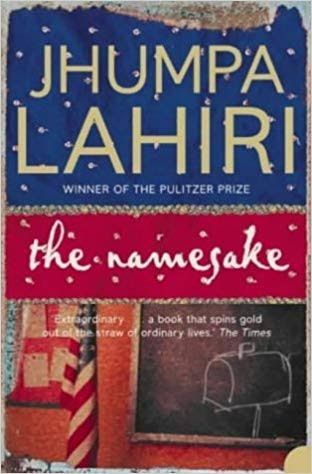The Namesake
Jul 23, 2019 • 13 views
‘The Namesake’ is the first novel by Jhumpa Lahiri. It was originally a novella which is a small novel or a collection of short stories published in The New Yorker and was later expanded to a full length novel. It explores many of the same emotional and cultural themes like other Indian Women Novelists. Moving between events in Calcutta and Boston and New York City, the novel examines the nuances involved with being caught between two different and conflicting cultures with highly distinct religious, cultural and ideological differences.

Marriage is portrayed in a nuanced manner throughout the novel. The marriage of two different couples are exMined, showing the various themes that repeat themselves from one generation to another. Although, the author dwells into the darker side of the marriage, this work manages to avaoid cynicism.
The Namesake explores how race and class effect an individual’s development, and what that has to do up with people’s relationships and it does through Gogol’s unique story. For every character, the novel tracks how the cultural heritage and their social class affect them. The starkest difference is probably between the Bengali and the Anglo-American characters, but we also see how the experience is being Indian-American can be different for men and women.

There are all different types of relationships in ‘The Namesake’ from the sweet and steadfast marriage of Ashoke and Ashima, to the passionate but doomed relationship between Gogol and Maxine, to short lived lonesome marriage between Gogol and Moushumi. Women in Indian English fiction is depicted as silent sufferer and upholder of traditional value of family and society. Born and brought up in India, Ashima too upholds the Indian values , traditions and cultures even in America.
Lahiri provides nuanced and sensitive depiction of Bengali American male characters who are amiable, intellectual , caring, thoughtful , often nurturing and certainly not villainous. Lahiri’s depiction of male is unlike Divakaruni’s whose Bengali or Indian American male characters are often portrayed as unidimensional as repressive and oppressive agents who physically , emotionally or verbally abuse their female victims as in ‘Aranged Marriage’ , ‘Mistress of Spices’ or ‘Sister of My Heart’.
Unlike Divakaruni, Lahiri usually evokes readers empathy for most of her male characters and is often less sympathetic and more satirical of the females. He male protagonists do not display the extreme negative characteristics.
